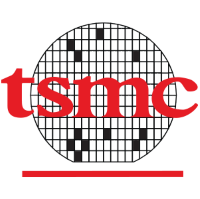
NVIDIA and Broadcom: AI Chip Market Leaders Face New Challenges

The AI chip industry remains one of the most dynamic and competitive sectors in technology, with companies like NVIDIA and Broadcom playing a crucial role in shaping its future. As artificial intelligence continues to drive demand for high-performance computing, these firms have reported impressive financial results, reflecting both the opportunities and challenges in this evolving market. NVIDIA maintains its stronghold in AI training chips, while Broadcom is making significant strides in customized AI solutions. This article examines their latest earnings reports, market positioning, and potential growth trajectories amid increasing competition. Over the past week, both NVIDIA Corporation (NVDA) and Broadcom Inc. (AVGO) released their earnings reports, shedding light on their financial performance and future prospects in the competitive landscape of AI chip manufacturing.
NVIDIA’s Strong Financial Performance
NVIDIA reported a substantial 78% increase in total revenue, reaching $39.3 billion for the fourth quarter of its 2025 fiscal year. This surge was primarily driven by its data center segment, which saw a remarkable 90% growth, contributing $35 billion to the total revenue. The company's dominance in the AI chip sector is underscored by its general-purpose GPUs, which hold approximately 85% of the market share.
Challenges for NVIDIA
Despite NVIDIA’s impressive financial performance, the company faces growing challenges in maintaining its dominance in the AI chip market. One of the primary concerns revolves around the high energy consumption of its flagship H100 GPU. As AI workloads become more complex, data centers require increasingly powerful hardware, leading to a surge in electricity demand. This has raised concerns about operating costs and sustainability, especially as global energy efficiency regulations tighten.
Another major limitation of the H100 chip is its memory bandwidth. AI models, particularly large language models (LLMs) and deep learning applications, rely heavily on rapid data transfer between processing units and memory. The H100, while powerful, struggles with bandwidth constraints that can bottleneck performance in some high-intensity AI tasks. This challenge has sparked discussions in the industry about the need for more efficient architectures, such as custom AI accelerators and novel memory solutions, to improve computational efficiency.
Additionally, NVIDIA faces increasing competition from emerging AI chip developers and major cloud providers developing in-house AI processors. Companies like Google (TPUs), Amazon (Inferentia and Trainium), and startups such as Tenstorrent and Cerebras are offering alternatives that optimize power efficiency and cost-effectiveness for AI inference and training workloads. The rise of these competitors pressures NVIDIA to innovate rapidly while addressing performance bottlenecks and energy concerns.
As a result, NVIDIA is actively exploring next-generation architectures, including the upcoming Blackwell platform, which aims to enhance both energy efficiency and processing speed. However, until these advancements are fully realized, the company must navigate the growing demands for AI hardware that balances raw power with sustainability and cost efficiency.
Broadcom’s AI Revenue Surge
In contrast, Broadcom's earnings report revealed that its AI-related revenue reached $4.1 billion in the first quarter, accounting for 28% of its total revenue of $14.6 billion. The company focuses on customized ASICs designed for specific AI workloads, claiming efficiency improvements of over 50% in tasks like matrix operations compared to general accelerators, along with approximately 30% lower power consumption.
Broadcom's strategy leverages its 30 years of ASIC design experience and strong partnerships with major tech companies like Google and Meta. The recent acquisition of VMware has also bolstered its infrastructure software revenue, enhancing its competitive edge in the AI chip market.
The AI chip market is increasingly dividing into two segments: training and inference. NVIDIA's GPUs dominate the training segment with an 80% market share, while the inference segment, which prioritizes cost and efficiency, presents opportunities for Broadcom's customized solutions.
Investors have responded to these developments with notable market movements. NVIDIA's stock experienced a significant drop of approximately 17% recently, influenced by competitive pressures from emerging AI technologies and companies like China's DeepSeek. Conversely, Broadcom's stock has shown resilience, with analysts maintaining a generally optimistic outlook despite recent volatility.

Dr. Viktor Kalm is a Senior Investment Analyst at Alpha Spread. He has over seven years of experience in corporate finance, specializing in financial modeling, business valuation, and strategic planning services. Previously, as a hedge fund manager, he focused on private equity management, consistently delivering positive returns to his clients.

Dr. Viktor Kalm is a Senior Investment Analyst at Alpha Spread. He has over seven years of experience in corporate finance, specializing in financial modeling, business valuation, and strategic planning services. Previously, as a hedge fund manager, he focused on private equity management, consistently delivering positive returns to his clients.

 GM
GM
 F
F
 QCOM
QCOM
 INTC
INTC
 NVDA
NVDA
 AVGO
AVGO
 AMD
AMD
 TSLA
TSLA
 U
U
 SNAP
SNAP
 RBLX
RBLX
 QCOM
QCOM
 AAPL
AAPL
 NVDA
NVDA
 ADSK
ADSK
 META
META
 MSFT
MSFT
 6758
6758
 NOW
NOW
 PLTR
PLTR
 SNOW
SNOW
 SMCI
SMCI
 NVDA
NVDA
 META
META
 MSFT
MSFT
 AMD
AMD
 CRWD
CRWD

 AVGO
AVGO
 MU
MU
 QCOM
QCOM
 INTC
INTC
 TXN
TXN
 NVDA
NVDA
 LRCX
LRCX
 AVGO
AVGO
 AMD
AMD
 2330
2330
 ASML
ASML



































 You don't have any saved screeners yet
You don't have any saved screeners yet